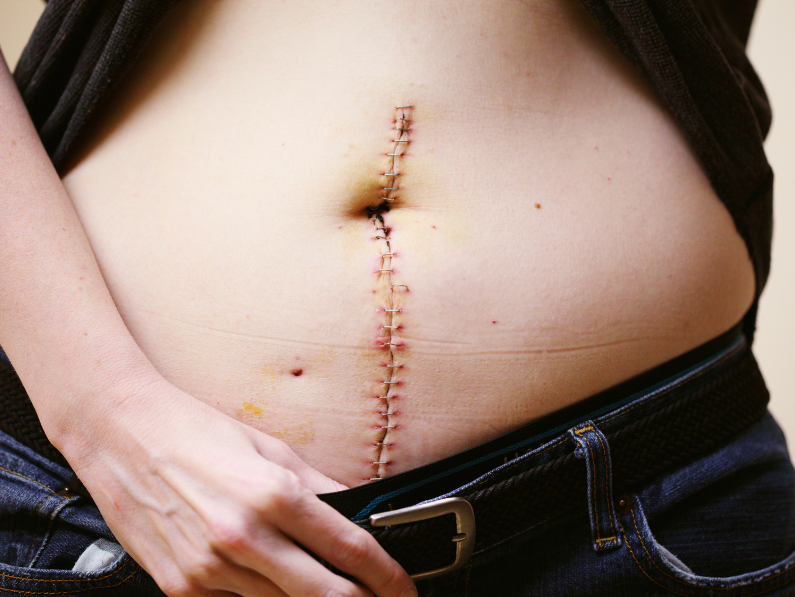Syphilis is a sexually transmitted disease, and talking about it in today’s modern culture is rare. However, it remains contagious and infectious and can spread via unprotected sexual contact with an infected person during its various stages. Yet, proper awareness and education that focuses on increasing knowledge regarding how to detect infection, adequate treatment, and prevention methods can help decrease the spread of syphilis.
Page Contents
Syphilis 101
Syphilis is a bacterial infection that’s spread via unprotected sexual contact with an infected person. For instance, engaging in oral, anal, or vaginal sex without using a condom can increase your risk of contracting and spreading syphilis. The bacteria treponema or T. palladium, for short, is the cause of the disease. Those infected with syphilis can experience sores on the vagina, anus, rectum, lips, or mouth in the early stages of infection. When left untreated, it can progress into advanced stages, which can cause various health complications.
Primary Stage: Beginning of Infection
Those in the primary stage will begin to notice symptoms around ten days to 3 months after contracting it. Typically, symptoms start with the development of one or more painless sores on the vagina, anus, rectum, lips, or mouth. And, these sores can exhibit a round appearance and firm texture. After 2-6 weeks, the lesions resolve on their own. However, without proper treatment, the disease becomes dormant and moves onto the next stage.

Secondary Stage: Early Progression
At this time, the disease flares up and causes a variety of symptoms. Examples of common symptoms during this stage include:
- Sores similar in appearance to oral, anal, and genital warts
- Rough red to a reddish-brown rash that starts on the midsection of the body and spreads throughout.
- Muscle aches
- Fever
- Sore throat
- Swollen lymph nodes
- Patchy hair loss
- Headaches
- Abnormal weight loss
- Fatigue
Similar to the primary stage, these symptoms resolve within a few weeks. But, they can recur multiple times and last for more extended periods if left untreated. Additionally, failing to treat the disease at this stage means it will continue advancing.
Latent Stage: Intermediate
During this stage, no noticeable symptoms are present. This dormancy can last for years giving the infected person the false belief the disease is gone. However, it’s still present, meaning it can still be spread to others via unprotected sexual contact. Additionally, if it remains untreated, it’s left to progress to the final stage.
Tertiary: Advanced
At this time, syphilis has advanced to a dangerous and potentially life-threatening phase. After the failure to treat it during the subsequent stages over 10-30 years is when this stage occurs. During this time, organs and systems are impacted, contributing to fatal results. The organs and systems primarily affected are the heart, blood vessels, liver, bones, and joints. Additionally, soft tissue swellings known as gummas begin to develop on the body.

Treating and Preventing Syphilis
Syphilis can become deadly if left untreated. But, when caught early, it can be cured with antibiotics. Even in the case of more progressive stages such as secondary and latent, the disease remains treatable. In those cases, a requirement involves taking antibiotics for a more extended period. Furthermore, complete abstinence from sexual activity is required until treatment is finalized. It’s only safe to resume sexual activity once a medical professional administers proper testing, revealing that the disease is no longer in the system. This process can take several months until tests come back negative for syphilis.
Disease & Symptom Awareness
A key factor in catching and treating syphilis is awareness of how it’s contracted, common symptoms, and participating in regular screenings if you choose to be sexually active. Ultimately, taking the time to advocate for your sexual health and well-being if you’re deciding to engage in sexual activity with others. Doing so goes a long way in keeping you healthy and detecting issues early on. Furthermore, this knowledge will help you identify abnormal symptoms such as sores on the genitals and unusual rashes on the body as these are some of the earliest visible signs of syphilis.
Upon noticing said symptoms, schedule an appointment with your doctor to discuss your sexual history, symptoms you’re experiencing, and what appropriate tests need to be administered. Doing so leads to proper diagnosis and swift treatment.

Preventing Syphilis with Safe Sexual Practices
While syphilis is treatable with antibiotics, it can be prevented by choosing to engage in safe sexual practices. These practices range from abstinence to engaging in responsible and safe sexual relationships. The practice of abstinence involves avoiding all sexual contact, which includes oral and anal sex. Furthermore, this is the only method that’s 100% effective in preventing the spread and contraction of syphilis.
Another preventative tool focuses on engaging in responsible sexual practices. This entails monogamous sexual relationships in which two people consent to engage in sex with one another exclusively. Additionally, at the beginning of such a relationship, both parties are transparent about their sexual history and sexual health. And, they prioritize getting tested for STD’s before having sex. Even so, it may still be prudent to use condoms and practice good sexual hygiene. For instance, properly cleansing sex toys in between uses and avoid sharing them. Another vital facet of responsible sexual practices is to get routine STD screenings. Creating this habit ensures that both parties are healthy and prevent spreading diseases to each other.
Prioritizing Sexual Health
Untreated syphilis can lead to deadly health complications. Thankfully, it can be treated when caught early, and antibiotics are administered. But, it’s crucial to understand what syphilis is, common symptoms, how it’s contracted, and treatments—prioritizing sexual health education aids in early detection and proper treatment in addition to empowering others to choose responsible sexual practices and encounters. Whether that’s abstinence, monogamy, or safer sex habits, proper sexual education reduces the spread of sexually transmitted diseases such as syphilis.
References
About the Author

Hi, my name is Kathleen but you can call me Kat. I’m a health and wellness professional turned freelance writer and content creator. You can find me on YouTube and Instagram. If you take the opportunity to visit me on my other platforms don’t hesitate to leave a message, I would love to hear from you!
Subscribe!
Get updates delivered directly to your inbox!
[gravityform id=”1″ title=”false” description=”true”]






